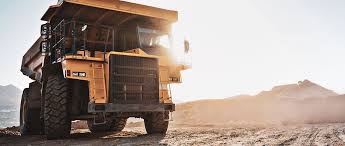https://en.wikipedia.org/wiki/Lun-class_ekranoplan
Only one built, and it’s still on the shore of the Caspian sea:
- OpenStreetMap: https://www.osm.org/?mlat=41.94067&mlon=48.37885&zoom=18&layers=M
- Gmaps satellite: https://www.google.com/maps?ll=41.94067%2C48.37885&q=41.94067%2C48.37885&hl=en&t=h&z=18
General characteristics
- Crew: 15 (6 officers, 9 enlisted)
- Capacity: 137 t (302,000 lb)
- Length: 73.8 m (242 ft 2 in)
- Wingspan: 44 m (144 ft 4 in)
- Height: 19.2 m (63 ft 0 in)
- Wing area: 550 m2 (5,900 sq ft)
- Empty weight: 286,000 kg (630,522 lb)
- Max takeoff weight: 380,000 kg (837,757 lb)
- Powerplant: 8 × Kuznetsov NK-87 turbofans, 127.4 kN (28,600 lbf) thrust each
Performance
- Maximum speed: 550 km/h (340 mph, 300 kn)
- Cruise speed: 450 km/h (280 mph, 240 kn) at 2.5 m (8 ft)
- Range: 2,000 km (1,200 mi, 1,100 nmi)
- Service ceiling: 5 m (16 ft) in ground effect
Armament
- Guns: two 23mm Pl-23 cannon in a twin tail turret and two 23mm Pl-23 cannon in a twin turret under forward missile tubes
- Missiles: six launchers for P-270 Moskit Sunburn antiship missiles


It was preliminary conceived as a platform for anti ship missiles. Because it was so low, it could get within 10 to 20 miles before showing up on ship based radar. Basically think of it as a ship but with the speed of an aircraft. When the Americans first photographed it with a satellite they called it the Caspian sea monster. They had no idea what it could do and were genuinely worried at first.
Ultimately it proved too hard to fly. It had to be hand flown with a vertical margin of error of just a meter or two.
I can’t imagine how sweaty my hands would be having to hand fly that monster over water.
One good gust of wind and now you’re trying to swim at 300 miles an hour
Yeah I was watching a video about these things a little bit ago. If I am remembering correctly in rough weather the pilots had to switch every 20-30 minutes due to exhaustion.
Was half the crew pilots?
It never made it out of flight tests. I think they usually had 3 or 4 pilots and a few engineers, plus the designer on board for most tests.